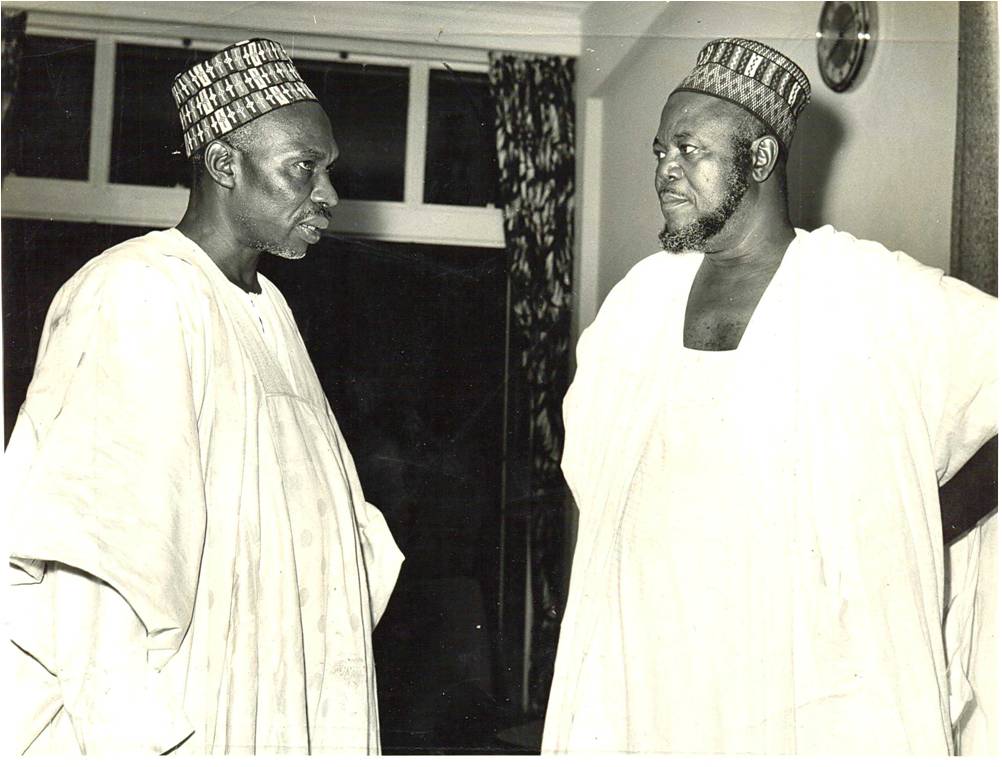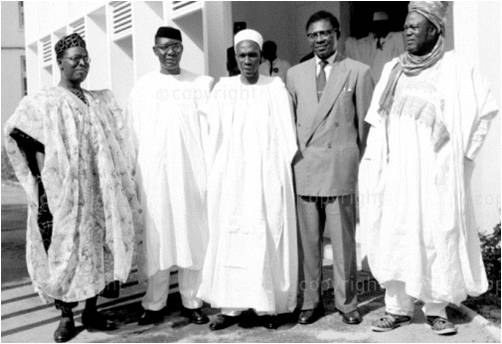Balkanization and Neo-Colonialism
 What
is the relationship between balkanization in Africa (splitting up the continent
into many small or relatively small states) and neo-colonialism (indirect
control of an independent state through domination of its economy by Western
capitalism)? To what extent can the departing colonialists be held responsible
for neo-colonial balkanization? The high priest of the theory that
balkanization and neo-colonialism are interconnected was Kwame Nkrumah, whose
ideas on this subject are expounded in his book Neo- Colonialism.
Nkrumah wrote:
What
is the relationship between balkanization in Africa (splitting up the continent
into many small or relatively small states) and neo-colonialism (indirect
control of an independent state through domination of its economy by Western
capitalism)? To what extent can the departing colonialists be held responsible
for neo-colonial balkanization? The high priest of the theory that
balkanization and neo-colonialism are interconnected was Kwame Nkrumah, whose
ideas on this subject are expounded in his book Neo- Colonialism.
Nkrumah wrote:
Neo-colonialism is based upon the principle of breaking up former large united colonial territories into a number of small non-viable States which are incapable of independent development and must rely upon the former imperial power for defence and even internal security. Their economic and financial systems are linked, as in colonial days, with those of the former colonial ruler.5
Again he wrote: 'Balkanization is the major instrument of neo-colonialism and will be found wherever neo-colonialism is practised.
And he went on to say that 'the profits of neo-colonialism can be secured if, in any given area, a reasonable proportion of the states have a neo-colonialist system. It is not necessary that they all should have one.'
The important thing is that these independent states should not be able to combine:
"Unless small states can combine they must be compelled to sell their primary products at prices dictated by the developed nations and buy their manufactured goods at the prices fixed by them.' Moreover, divided small African states 'will be unable to create a large enough market to support industrialization'.
How valid is Nkrumah's analysis? Undoubtedly he is justified in blaming neo-colonialism as an attempt by the advanced capitalist world to exploit the African economy. His book shows how very little of the profits of foreign companies in politically independent Africa filter through to the African masses. A few African workers benefit from the wages, generally very low in comparison with wages of European workers, which are paid by foreign companies.
Most of the rest of the population-the vast rural peasant class - benefit hardly at all. A country's standard of living cannot be appreciably affected by the activities of foreign companies, which provide 'relatively privileged isolated islands in a very poor total economy'. For example, mining production 'goes to feed the industries and factories of Europe and America to the impoverishment of the countries of origin', which do not process the minerals and possess few or no industries which could be fed by them.
Nkrumah showed how 'When the countries of their origin are obliged to buy back their minerals and other raw products in the form of finished goods, they do so at grossly inflated prices. Moreover, the Western countries dictated the prices of primary products on the world market (at least until the oil exporters began to raise their prices in the 1970s).
But although Nkrumah correctly diagnosed neo-colonialism as a major cause of Africa's economic ills, was he correct in linking neo-colonialism to balkanization? Nkrumah would have been justified if he had contented himself with saying that balkanization makes neo-colonialism easier. But he would appear to be wrong in stating that balkanization is an essential pre-condition for neo-colonialism. Some small states can successfully challenge neo-colonialism, as Guinea and others have done. Nkrumah admitted this. But he passed over the fact that neo-colonialism can exist in large states such as Nigeria, Zaire, Sudan and Ethiopia.
Nor did he consider the examples of South America and Asia, where neo-colonialism is rampant in countries that are generally much larger than African countries. It is very easy to make neo-colonialism guilty of perpetuating Africa's economic underdevelopment also a scapegoat for the general unwillingness of Africa's political leaders to federate their countries. The multinational Western monopolies which operate neo-colonialism have taken advantage of Africa's balkanized independence. But then so have key sections of the African elites of the new States - both by allying with these monopolies for short-term gains often of a personal nature, and by holding fast to the principle: better a big fish in a small pool than a small fish in a bigger pool.
 See (in this picture) how
our brothers suffered carrying Europeans as if it was a crime to be an African.
In another picture below you can see how former Uganda's life president made
the British to carry him in order to wash away those bad memories.
See (in this picture) how
our brothers suffered carrying Europeans as if it was a crime to be an African.
In another picture below you can see how former Uganda's life president made
the British to carry him in order to wash away those bad memories.
Nkrumah's analysis implicitly links the governments of the decolonizing powers with the multinational companies that practise neo-colonialism. This is far-fetched. There is little evidence that Western governments are controlled by the monopolies and less still that the decisions about when and how to decolonize were influenced by the monopolies. On the contrary, there is evidence that colonial powers often supported federations to help overcome balkanization even sometimes regardless of reality, as in the case of the Central African Federation.
The unifications of Cameroun and of Somalia were not hindered by the colonial powers concerned. The British placed no obstacle in the way of a possible East African Federation. Nkrumah does blame Britain for the "economic balkanization' of Nigeria:

Nigerian leaders Prime Minister Sir Abubaker Tafawa Balewa with Ahamdu
The constitution imposed on Nigeria at independence divided the country into three regions (which have since grown to four) loosely joined on a Federal basis but with sufficient powers left to cripple overall economic planning.
It should be pointed out, however, that the loose federal constitution was not imposed on Nigeria by the departing British. Admittedly, the' British had originally created strong regions and thereby encouraged regionalism and the ethnicism related to it, but on the other hand the politicians of Nigeria were in general strong federalists and opponents of a unitary government and should bear some of the blame.
The very fact that the independence politicians created a fourth region (the Mid-West) once the British had gone is evidence that African leaders as much as British colonialists backed regionalist federalism.
This argument depends, of course, on which decolonizing power and which country in Africa one is referring to. There can be no doubt that the French Government's Loi Cadre of 1956 strengthened the balkanization of Africa. Originally the African leaders in French Africa were strongly committed to federations in which vast areas could be self-supporting by the reallocation of revenues from richer to poorer territories.
 Sir abubaker balewa (centre) Obafemi Owolowo, Dr. Namdi Azikiwe, all leaders of balkanized Nigeria
Sir abubaker balewa (centre) Obafemi Owolowo, Dr. Namdi Azikiwe, all leaders of balkanized Nigeria
De Gaulle's 1958 referendum narrowed the choice to either balkanized semi-independence within a French Community or balkanized independence outside the Community. In spite of the referendum the Mali Federation was created. As we shall see in a later chapter, the federation collapsed partly because of personalized disputes between the leaders of Senegal and Soudan, but largely because of" France's strong neo-colonialism in Senegal, through control of the economy and stationing of French troops in the country.
Thus, while it is possible to acknowledge the existence of neo-colonialism in post-independent Africa as a powerful reality, it is not necessary to accept Kwame Nkrumah's thesis of a deliberate plan by all Western governments and monopolies to keep Africa divided and to employ neo-colonialism as an instrument of division.
Neo-colonialism is a powerful obstacle to African unity, but it is not an insuperable one. There are many other hurdles in the way of African unity, especially concerning differences in ideology and organization. But these, too, are not insuperable. The real obstacle is the apparent lack of will on the part of Africa's leaders to tackle these problems.
National Movements and New States in Africa